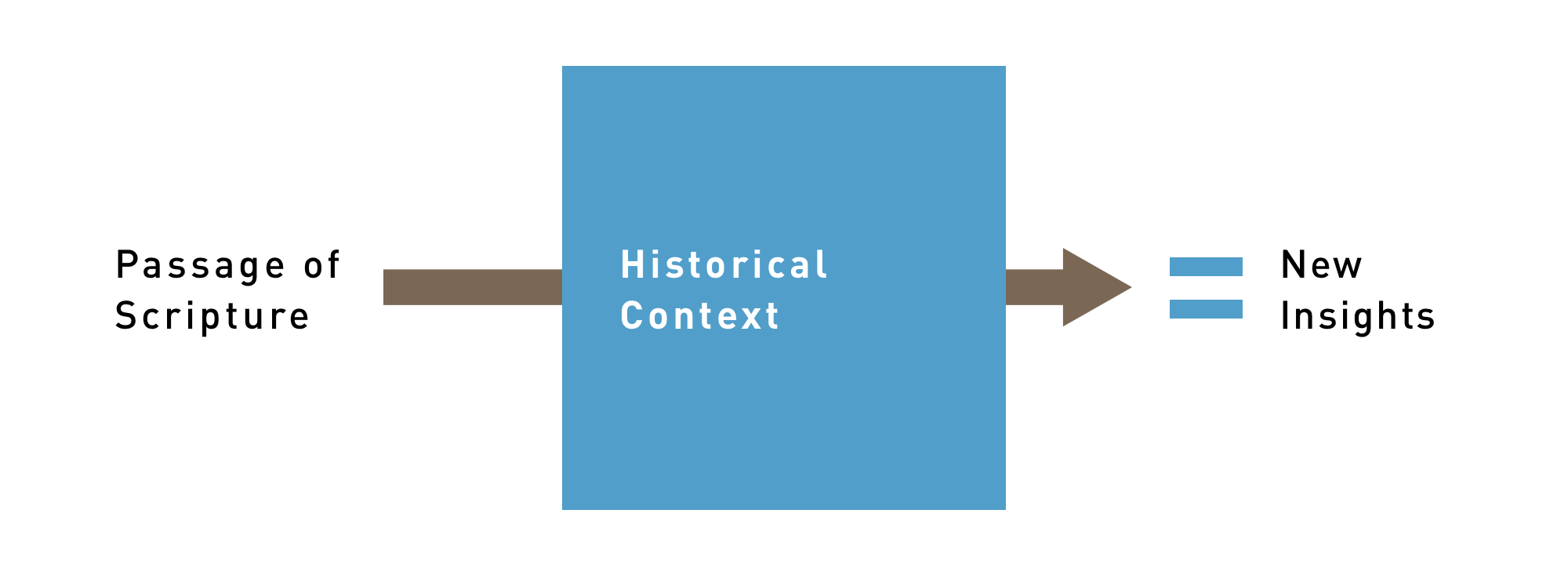
The Bible is not only full of history but it is a part of history. It informs us what was going on historically and culturally at the time the stories were recorded. God’s people were affected by history, and history was affected by God’s people. As we read God’s Word, we see that the development of mankind, civilization, and kingdoms through the centuries bleed onto the pages of Scripture.
This weaving of history with the events of the Bible is known as historical context. It is a crucial piece of the puzzle for any student of God’s Word. So exactly why is historical context important when you are studying the Bible?
Why Is Historical Context Important?
The historical context of any verse, book, or passage you read needs to be a factor in how you interpret what you are reading. Every word of the Bible was written at a certain point in history, in the midst of a certain set of circumstances.
Often, this outside information will give you a lot of insight as to the purpose of what has been written. The why, when, and where details of the passage will be connected to the historical context.
If you allow the historical context to set the scene for you, the words on the page will become much more real and meaningful to you because you will know why it was significant to its original audience. Understanding the historical context will allow you to garner new insights and therefore a deeper understanding.
This will definitely take researching into outside sources, like commentaries, history books, and cross-referenced biblical passages that might explain what was going on at the time your particular verses were written.
As you study, ask yourself questions like these:
Who is the author of this passage, and what is known about him?
Who is the audience, and what circumstances did they find themselves in?
At what point in history were these people living?
What was going on politically, economically, culturally, and religiously at the time?
For Example: Luke 7
Let’s consider the historical and cultural context of Luke 7:36-39:
“When one of the Pharisees invited Jesus to have dinner with him, he went to the Pharisee’s house and reclined at the table. A woman in that town who lived a sinful life learned that Jesus was eating at the Pharisee’s house, so she came there with an alabaster jar of perfume. As she stood behind him at his feet weeping, she began to wet his feet with her tears. Then she wiped them with her hair, kissed them and poured perfume on them. When the Pharisee who had invited him saw this, he said to himself, ‘If this man were a prophet, he would know who is touching him and what kind of woman she is – that she is a sinner.’”
This passage is packed full of historical and cultural context that, when understood, makes it come alive. Using the NIV Cultural Backgrounds Study Bible as a resource, we are able to see several interesting facts surrounding this story that help reveal its richness:
- The Pharisee (a religious leader) who invited Jesus to dinner would have been viewed as doing a virtuous thing.
- The fact that Jesus was reclining indicates that this was no normal meal; reclining was something typically done at a banquet. This meal would have been considered an honor to be at – it may even have been put on for Jesus’ sake.
- The alabaster jar of perfume that the woman brought with her was a fragile and beautiful piece of pottery. The ointment or perfume inside was often used at this time in history to anoint the dead at their burial.
- The act of anointing someone was a gesture of courtesy and at times high honor, as in the case of a king being anointed (2 Kings 9:6).
- The fact that this woman wiped Jesus’ feet with her hair is significant. It was shameful for married women, as she may well have been, to have their hair uncovered in public.
- The woman was a known sinner, and clearly from the Pharisee’s reaction it was socially inappropriate for Jesus to allow her to touch him. The woman risked much public disgrace for her action of worship towards Jesus.
These few aspects of this passage cause us to see it in a deeper way. And these are just a few facts from one source!
Researching the Historical Context
Now, you may be thinking, “I wasn’t alive 2,000 years ago, so it’s gonna be pretty tough for me to fully understand what was going on back then.” You’re right, but the great thing is that you don’t need to know it all. Having just a basic understanding of the cultural and historical atmosphere will help you immensely, and you can choose from there how much further to study it.
Researching doesn’t have to feel like an impossible task. Scholars and historians have done much of the work for us already. It is a gift that there are many great resources out there that can provide you with an accurate picture of the historical and cultural context.
If you want to understand the historical context of different biblical passages, ask your pastor for some commentaries or history books that he recommends. Or consider investing in a few resources of your own.
Why is historical context important when studying God’s Word? It will reveal why the text was written. It will enrich what you take away from the passage, and help you understand the full meaning. It will help you grasp why the words were significant to their original audience. It will increase the likelihood of you interpreting the Bible correctly.
Don’t wait; incorporate researching the historical context into your Bible study today.
Emily Kurz is a graduate of Ethnos360 Bible Institute. She currently lives in North Carolina, where she is finishing a degree in Secondary English Education. Emily enjoys sports, bungee jumping, reading, and writing, and hopes to one day teach english as a second language in Latin America.

